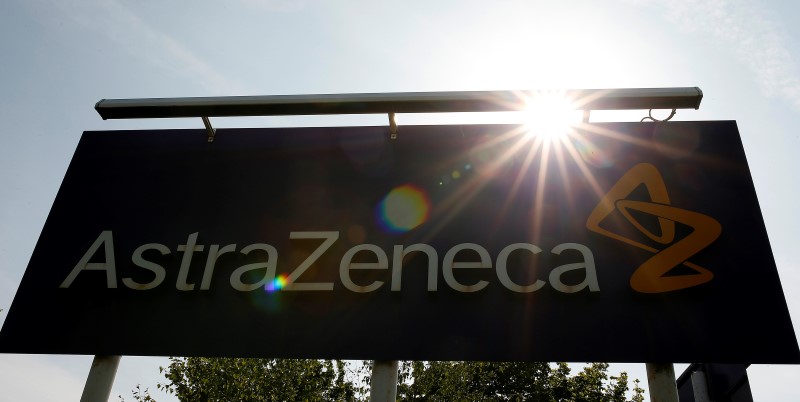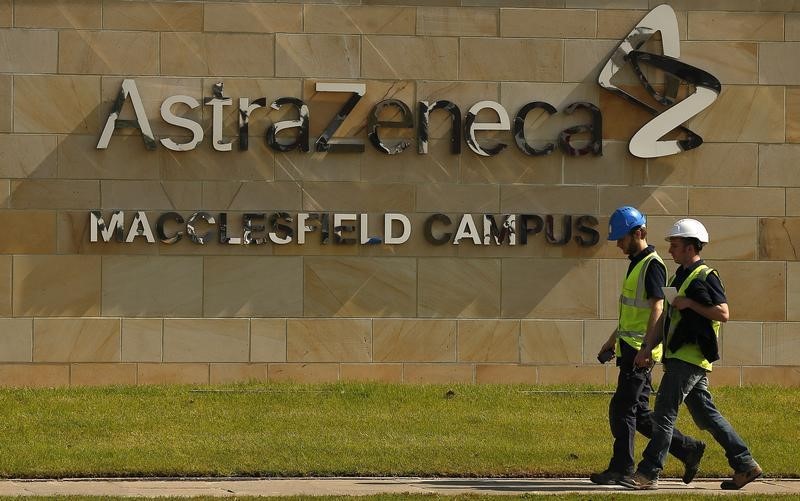By Ben Hirschler
LONDON (Reuters) - AstraZeneca (L:AZN) warned on Thursday that revenue and earnings would drop this year due to the arrival of cheap generic rivals to Crestor, its top-selling cholesterol drug, which will offset growth in sales of newer medicines.
The drugmaker, which saw off a takeover attempt by Pfizer (N:PFE) in 2014, is expected to see a trough in profits this year and next before a hoped-for resurgence on the back of a promising pipeline of experimental drugs.
For 2016 AstraZeneca said that would mean a low to mid single-digit percentage decline in both revenue and core earnings per share, which exclude certain items, at constant exchange rates.
With currencies expected to have a further adverse impact of around 3 percent, the downbeat outlook had dragged the shares down 4.2 percent to 4,227 pence by 0958 GMT.
Many investors had expected AstraZeneca to predict broadly flat earnings in 2016, in part because long-term management incentives are tied to keeping earnings at or above $4.20 a share. The new guidance implies a figure of about $4.00.
However, a company spokeswoman said the remuneration committee would take the dilutive impact of recent acquisitions into account when assessing performance, which Jefferies analysts said gave executives increased leeway to invest in research and development (R&D).
TRANSITION
Chief Executive Pascal Soriot said AstraZeneca faced a "transitional period" due to the expiry of Crestor's U.S. patent in May, but the company was poised for a comeback and it would continue to plough investment into drug research.
R&D spending this year is expected to stay around 2015 levels.
"Clearly, 2016 will be a challenging year due to the loss of exclusivity for Crestor in the United States. It is a very, very big product," Soriot told reporters.
But he reiterated AstraZeneca's ambition to build a business with annual sales of at least $45 billion by 2023, up from $24.7 billion in 2015.
Revenue in the fourth quarter of last year fell 5 percent to $6.4 billion, hit by earlier drug patent expiries, generating core earnings per share of 94 cents, up 26 percent.
Industry analysts had on average forecast sales of $6.29 billion and earnings of 95 cents, according to Thomson Reuters.
In addition to the Crestor hit, 2016 results will also be suppressed by short-term profit dilution from the recent acquisitions of Acerta Pharma and ZS Pharma.
"AstraZeneca's results demonstrate progress is being made, with a number of positives clearly visible," said Mick Cooper of equity research house Trinity Delta. "However, the overwhelming feeling remains that the light at the end of the tunnel is still some way away."
Soriot has been active in making bolt-on acquisitions of promising biotech companies to complement in-house research, while selling off non-core products to help pay the bills.
Such divestments, or "externalisation" deals, contributed $1.1 billion to revenue last year and that figure is expected to be higher in 2016, the company said.
AstraZeneca has bet heavily on cancer medicine as a driver of future growth and it has several promising new products, including recently launched lung cancer pill Tagrisso.
It also has high hopes in the hot cancer area of immuno-oncology but here it is competing with several tough rivals, including Bristol-Myers Squibb (N:BMY), whose injectable drug Opdivo has a established a particularly strong position.

Soriot acknowledged AstraZeneca was behind in monotherapy immuno-oncology but said it was making rapid progress in developing drug combinations.
